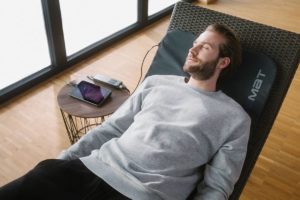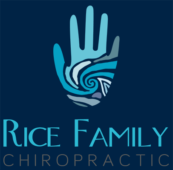Sleep troubles? Try these proven, drug-free methods.

Sleep troubles? Try these proven, drug-free methods.
If you have ever had a few nights restless sleep, or if you know an insomniac, you know well the importance of a good night’s sleep. Even a minor reduction in our regular sleep schedule can lead to health concerns.
For example, after losing one to two hours of sleep per night for one week, our ability to carry out cognitive and hand-eye coordination tasks such as driving becomes measurably impaired. Reducing sleep to less than five hours in a single night can lead to increased incidence of migraines, heart disease and chronic pain.
Studies show that after just 24 hours without sleep, the body’s core temperature drops, immune system function becomes impaired, the heart rate increases and growth hormone production slows. In lay terms, sleepless nights not only make us feel grumpy, but can also lead to longer term health issues.
The fact is, we spend about one third of our lives sleeping — or at least attempting to — but most of us know very little about what happens while we’re sleeping. Here’s a brief breakdown.
Simply put, sleep occurs in two alternating states: non-rapid eye movement (NREM) and rapid eye movement (REM).
Each full night’s sleep can be broken down into three stages, each with different amounts of NREM and REM. The first stage is comprised primarily of NREM with little REM. During the second stage we experience about equal amounts of NREM and REM. And during the final stage of sleep, we experience a greater proportion of REM, which is how we normally wake up.
Although the typical suggested sleep per day is eight to 8.5 hours of sleep, the actual amount required is dependent on each individual. Occasionally a person will require as little as five hours; other individuals require as much as 10 hours. In some cultures people sleep six or seven hours at night and then nap during the day. What is important is that you listen to your body and get the sleep you need to function optimally throughout the day.
A new study by the Canadian Men’s Health Foundation observes that one third of Canadian men are sleep-deprived, getting only four-to-six hours of sleep every night instead of the recommended seven to eight hours. Nearly half of the subjects in the study said they woke up feeling tired instead of refreshed.
Not surprisingly the typical response from the medical community is to prescribe drugs. This potentially leads to a slew of other health problems, including headaches, muscle aches, dizziness, inability to concentrate, and opiate dependence—and all the problems associated with that.
We treat sleeplessness differently. The first options are what we call the “low hanging fruit”. These simple solutions help many people struggling with lack of sleep, particularly those for whom the problem is new. These include dietary measures such as not drinking caffeine after 2pm, reducing (or eliminating) alcohol intake and not eating food before bedtime.
More than ever, electronic devices are with us throughout the day and some studies suggest these too may be affecting people’s sleep. For example, when used in the minutes before going to bed, the light emitted from smart phones, iPads and other electronic devices may interrupt our normal sleep mechanisms. Try unplugging from all electronic devices an hour or more before bedtime. Other sources of stimulation should be avoided as well.
Some insomniac’s report being unable to quiet their minds when they go to bed. This situation may be improved by calming activities such as meditation, reading or soaking in a warm bath. Creating a calming environment during the minutes or hours prior to getting into bed may prepare us physically, emotionally and mentally for a good night’s sleep.
One other important factor in getting a good regular sleep is setting yourself up for success by creating a predictable sleep schedule. This is common knowledge for parents raising babies and children, but adults often neglect the importance of getting to bed at a regular time each night and waking at the same time each morning.
Creating a comfortable sleeping environment is also an important factor in getting a good night’s sleep. Is your bedroom the correct temperature for creating a comfortable and relaxing sleep—or are you sweating (or shivering) and struggling to settle? Is your pillow the right loft? Is your mattress even and comfortable? All these factors (and others) may be affecting how rested you feel each morning.
Many of our patients are also surprised to find out that chiropractic has been shown to help improve sleep performance for many people. Chiropractic improves the blood flow in the nervous system and it corrects subluxations in the spine. Subluxations compress the nerves causing the lack of communication between the spine and the brain, which in turn can cause a stress response leading to restlessness in bed. Over the years, many, many clients have reported sleeping better following chiropractic treatment.
At Rice Family Chiropractic, we take a holistic approach to all physical ailments we treat—and believe that insomnia and sleeplessness can usually be treated holistically as well. If you are struggling with getting a good night’s sleep, or if you are struggling with other back-related issues, contact Rice Family Chiropractic for an appointment.


















